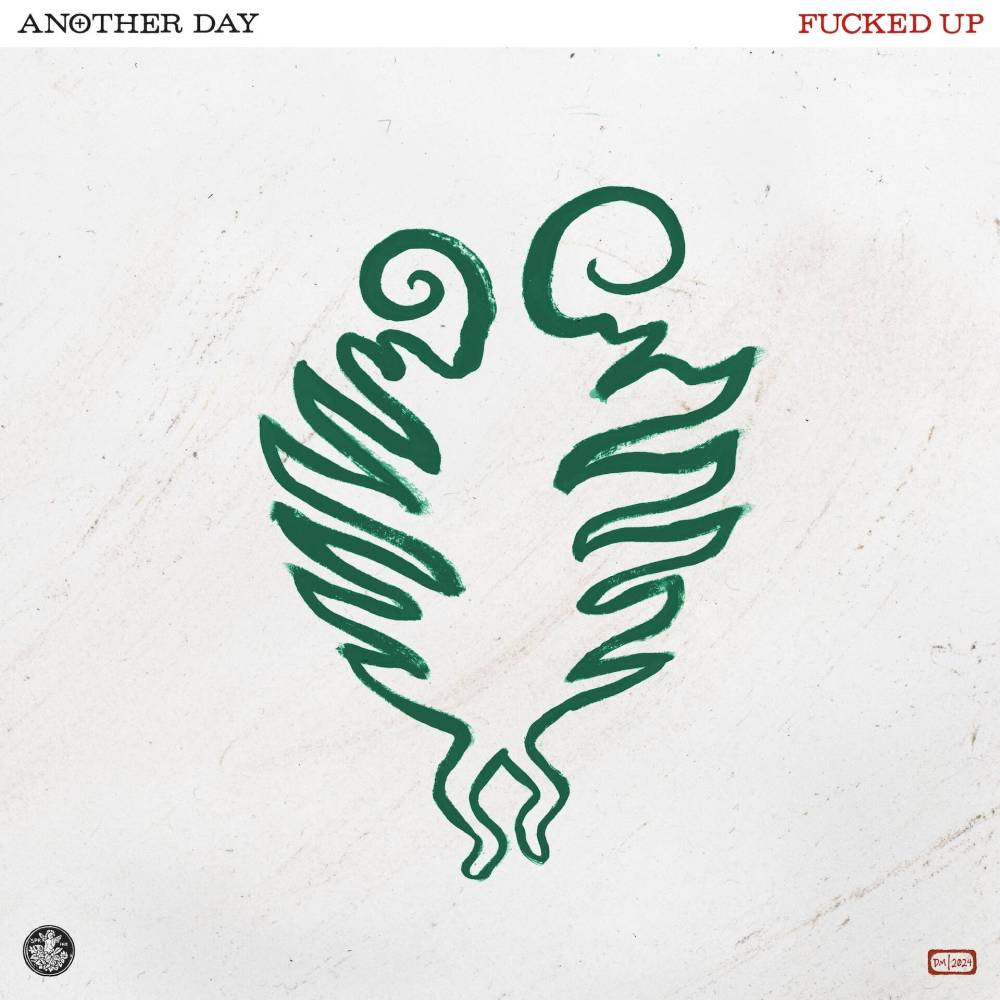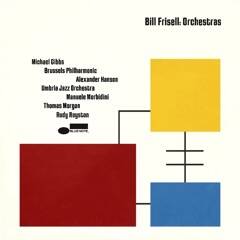New music
Reviews of this week’s album releases
Advertisement
Read this article for free:
or
Already have an account? Log in here »
To continue reading, please subscribe:
Monthly Digital Subscription
$0 for the first 4 weeks*
- Enjoy unlimited reading on winnipegfreepress.com
- Read the E-Edition, our digital replica newspaper
- Access News Break, our award-winning app
- Play interactive puzzles
*No charge for 4 weeks then price increases to the regular rate of $19.00 plus GST every four weeks. Offer available to new and qualified returning subscribers only. Cancel any time.
Monthly Digital Subscription
$4.75/week*
- Enjoy unlimited reading on winnipegfreepress.com
- Read the E-Edition, our digital replica newspaper
- Access News Break, our award-winning app
- Play interactive puzzles
*Billed as $19 plus GST every four weeks. Cancel any time.
To continue reading, please subscribe:
Add Free Press access to your Brandon Sun subscription for only an additional
$1 for the first 4 weeks*
*Your next subscription payment will increase by $1.00 and you will be charged $16.99 plus GST for four weeks. After four weeks, your payment will increase to $23.99 plus GST every four weeks.
Read unlimited articles for free today:
or
Already have an account? Log in here »
Hey there, time traveller!
This article was published 16/08/2024 (464 days ago), so information in it may no longer be current.
Rock
F—ked Up
Another Day (F—ked Up Records)
F—ked Up’s last full-length album, One Day, was the musical equivalent of a literary conceit. After making sprawling punk-rock operas such as David Comes to Life, Dose Your Dreams and Year of the Horse, guitarist and songwriter Mike Haliechuk set himself the task of writing and recording an album in the space of 24 hours, then challenged his bandmates to add their parts within the same time constraints. The result was a pummelling, back-to-basics album — the quintet’s shortest to date.
If One Day was meant to be a creative reset, Another Day is the proof that it worked. The band is firing on all cylinders here — guitarist Jason Zucker is back — and this brief, 10-song collection finds the Toronto band embracing (and echoing) the sounds of its youthful beginnings, albeit with the finesse that comes with more than two decades of playing together.
The guitars of Haliechuk and Zucker are simply monstrous, alternating between rhythmic walls of sound, tightly woven dual leads and compelling melodic runs. Drummer Jonah Falco and bassist Sandy Miranda are similarly huge — Falco pummels his kit as the songs reach their many crescendos (often featuring gang vocals) while Miranda makes her way fluidly through the dynamic twists, turns and cliffhangers of these arrangements.
And then there’s Damian Abraham, the singer/growler whose roars bring grit and texture and meaning to the party.
Unlike their conceptual work, the songs are rather matter-of-fact. Haliechuk and Abraham split the lyrics between them, revealing the nuance of age and experience in songs about music being an alternate outlet for many (Stimming, a Haliechuk lyric); the cataclysmic possibilities of climate change (Paternal Instinct, by Abraham); and the falsehoods of divinity (Divining Gods, an Abraham tune that ends with him screaming for a hammer and nails).
Tell Yourself You Will, a churning melodic guitar duel anchored by pounding drums, features compelling lyrics from Haliechuk, urging people along the path to self-fulfilment. You’ll think it’s the most anthemic song F—ked Up has written — until you get to the album’s final track, House Lights, on which Abraham reaches out to the masses to acknowledge the communion that is live music: “It’s got its problems, and the world is full of strife / But you fight to find the joy before they bring up the house lights.”
★★★★ out of five
STREAM: Stimming, Tell Yourself You Will, House Lights
— John Kendle
POP/ROCK
Beabadoobee
This Is How Tomorrow Moves (Dirty Hit Records)
This should be automatic. An effortlessly cool English alt-pop performer who has opened for Taylor Swift releases an album produced by the legendary Rick Rubin, and the rest falls in place.
But the best-laid plans sometimes fall short and Beabadoobee’s third studio album, This Is How Tomorrow Moves, doesn’t quite move the needle.
Beabadoobee, whose real name is Beatrice Kristi Laus, worked with Rubin in his legendary Shangri-La studio in Malibu for the 14-track aural exploration — a far cry from the London bedroom where she started her career.
The album covers themes of self-acceptance and personal growth. While the songwriting is smart, the delivery feels a bit disconnected and vexed. Often, her voice is too slight to stand up to the sounds around her.
In track order, we’ll quickly move past the opener, Take A Bite, which frankly sounds too much like Incubus’ Drive in both lyrical structure and musical phrasing to be merely referential.
Good stuff begins on One Time, Tie My Shoes and Girl Song. Here, Beabadoobee hits her sweet spot. One Time is a medium-paced track wherein the songwriter casts a bit of shade and judgment about a paramour who faked it a little too much. She sings out here, loudly, and it sounds more earnest in emotion than the preceding tracks mired in a wall of guitar.
Girl Song could be brushed aside as a low-rung, soft piano ballad, but it deserves a deeper listen. It’s slow, it’s introspective and it is guaranteed to unleash a tear or two when Beabadoobee sings at the end of the chorus, “And there’s something I can’t say in an ordinary way,” leading to the refrain: “Day like no other, and just another bad day.”
This is an OK album, with some excellent songs and a fair bit of filler. At the end of it all, Beabadoobee remains a musical force to be respected. ★★★ out of five
STREAM: Girl Song, Tie My Shoes
— Ron Harris, The Associated Press
JAZZ
Bill Frisell
Orchestras – Blue Note
Guitarist Bill Frisell is perhaps best known for his trio work over the years, but he has an ear for symphonic jazz that gets a full workout here. This project is an ambitious two-CD release that features a different European large ensemble on each CD. Added to Frisell’s trio with Thomas Morgan on bass and Rudy Royston on drums are the 60 piece Brussels Philharmonic and the 11 piece Umbria Jazz Orchestra.
Recorded as concert engagements in Europe, the added dimension here is that the album is a tribute to the iconic arranger Michael Gibbs. All the arrangements are Gibbs’. Gibbs was born in Zimbabwe, moved to the U.S., then to England and other European areas, back to the U.S. and basically all over. He has worked with folks like Gary Burton, Kenny Wheeler, Jaco Pastorius, Joni Mitchell and a Who’s Who of other rock and jazz artists. While his name is often not well known, within the music world he is a giant.
The music here is hugely varied. The opening track on CD 1, Nocturne Vulgare with the Brussels orchestra, starts as an overture with several minutes of pure “classical” music before Frisell and the trio move in. The pattern, especially with the large symphony, allows the jazz trio and the large ensemble to trade off the centre stage.
The transitions are all smooth and offer a fascinating variety of influences deftly mixed by Gibbs. There are Frisell tunes like Strange Meeting and Monica Jane, along with gorgeous arrangements of standards Lush Life and Beautiful Dreamer. We Shall Overcome is given a powerful interpretation with the trio and the Umbria Orchestra.
There is perhaps a slightly larger jazz feel with the smaller Umbria group, but there are terrific tracks on both CDs. Lookout for Hope is a favourite among many choices. The whole album is further evidence that trying to pigeon-hole anything like a definition of jazz is a mug’s game. ★★★★1/2 out of five
STREAM: Throughout, Lookout For Hope
— Keith Black
CLASSICAL
Antonín Kraft — Carl Philipp Emanuel Bach: Cello Concertos
Jean-Guihen Queyras, Ensemble Resonanz, Riccardo Minasi (Harmonia Mundi)
Jean-Guihen Queyras pays homage to the cello concerto repertoire with this upcoming Harmonia Mundi release bookending a half-century regarded as the Age of Enlightenment and Revolution,” with the Ensemble Resonanz led by Riccardo Minasi.
Following a vigorous introduction by the orchestra, the soloist immediately displays his commanding artistry in Antonin Kraft’s Cello Concerto in C Major, Op. 4, the three-movement work penned in 1804 proving an ideal showcase for his virtuosity.
A highlight is the second movement Romance, in which the cellist’s lyrical melodic lines ebb and flow, while the finale Rondo alla Cosacca bristles with the taut energy of a rustic folkdance, including plenty of rhythmic punches.
Carl Philipp Emanuel Bach’s Cello Concerto in B-flat Major, H. 436, Wq. 171, as one of the Baroque composer’s three string works written between 1750 and ’53, offers a further taste of Queyras’s sensitive music-making as well as quicksilver passagework.
Minasi matches him match for note during the opening Allegretto, while the subsequent Adagio unfolds as an eloquent, cantabile style conversation among friends. Last but not least, the Allegro assai bursts out of the gate with all guns blazing, capping this album with that infectious energy that is the hallmark of this beloved musical son. ★★★★ out of five
STREAM: Cello Concerto in B-flat Major, H. 436, Wq. 171, Adagio;Cello Concerto in C Major, Op. 4, Rondo alla Cosacca
— Holly Harris
History
Updated on Friday, August 16, 2024 7:13 AM CDT: Updates web headline





